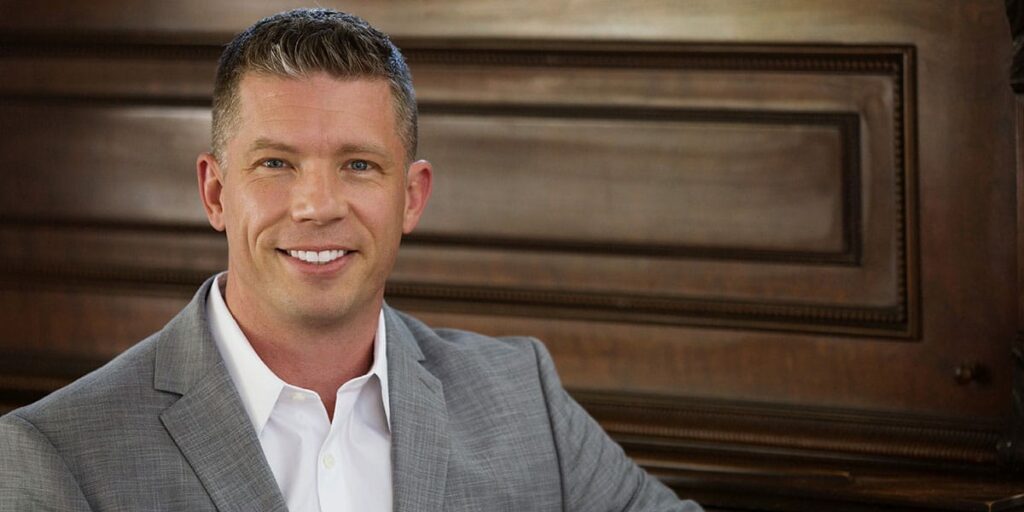Due Diligence on a Dental Practice
Don’t skimp on the due diligence when buying a dental practice. Here’s what to look out for.
contact us Work with UsDon’t skimp on the due diligence when buying a dental practice. Here’s what to look out for.
contact us Work with UsYou don’t want any nasty surprises after closing on your practice. You and your team of advisors should put in the necessary work upfront to ensure that you’re starting off on the right foot.
Speaking of advisors, we can help with the due diligence and valuation portions of your acquisition journey.
If you want a roadmap of the entire acquisition process, our 27-point checklist should be just what the dentist ordered.
Brian Hanks helps dentists navigate the acquisition process, from due diligence through closing on a practice. Contact us to learn more.
When you buy a house, there’s a whole defined process to make sure what you’re buying is what a seller tells you it is.
Title companies. Inspectors on roofs and in crawl spaces. Multiple visits to the property to see the house yourself.
No one closes on a house and says, “Wait…there’s a 4th bedroom over here?” (Well, no one I’ve ever heard of anyway…)
But, unlike buying a house, surprises when buying a dental practice can pop up.
So how does it work when you buy a dental practice?
How do you know what you’re actually buying? How do you reduce the number of surprises?
That’s where due diligence comes in. Some of it you’ll need to do on-site with a visit to the practice. Other aspects can be done remotely. Your bank will take the lead with much of the financial due diligence, while other aspects will require you to step up.
I once worked with a very jumpy buyer in California who was looking to purchase a dental practice. The buyer wanted to be sure that everything was on the up and up. Certainly understandable, I think we can all agree. But the buyer crashed his own deal.
He took his role in due diligence too far, wanting every possible bit of information, including bank statements, to review himself. At one point in the deal, the buyer wanted the seller’s bank login information because “the seller could alter the bank statements.” Specifically, he wanted to see if the cash income figures matched what the seller was claiming.
Before you ask, no, it’s not normal for a buyer to request a seller’s bank statements. And it’s definitely not normal to ask for login credentials. The deal fell apart, and the buyer ended up wasting everyone’s time and money, including his own.
Here’s the best part: when it comes to due diligence, you’ve got a whole team in your corner. You don’t have to do it yourself.
When it comes to the big stuff, it’s unlikely that anything would slip through all of those due diligence nets.
When it comes to the small stuff, as the buyer you’re going to have to take some information on faith. Is every patient in the system a real person? Are any records fabricated? Did the seller, even in the face of taxes, penalties, and jail time, submit inaccurate information to the IRS?
It’s impossible to know with 100% certainty how much cash a practice is collecting, or that there is no fraud going on in the practice. But the bottom line here is that there has to be some trust involved in your purchase of a dental practice.
Trust, but verify.
The Asset Purchase Agreement (APA) outlines exactly what you are purchasing (assets like equipment, goodwill, a brand name, and patient records). It also details what you aren’t purchasing (seller liabilities like lawsuits or tax debts).
But the real power is in the Representations and Warranties section. This clause says the seller must be 100% truthful about the practice’s financial health, legal standing, employee matters, and more.
If you later discover that the seller fudged facts or omitted something important? Breach of contract. The APA gives the buyer recourse to recover losses.
For dentists worried about getting duped in a practice purchase, the APA provides peace of mind. This legal document gives you an “out” if things aren’t as sweet as promised.
Many dentists misunderstand the sequence of events for the due diligence process. They think they’ll get the seller’s bank account statements before even putting in an offer. But it doesn’t work that way.
You generally don’t get the really juicy details about a practice until you have a signed letter of intent in hand. The basic sequence of events almost always goes something like this:
Think of step #2 above as high-level due diligence. Step #4 is where you get to audit patient charts, examine equipment, and ask detailed questions about referral partners & advertising strategy.
When looking at a practice to buy, you need to perform due diligence across the following areas of the business. Some of this will be done in-person and some of it will be done remotely.
We’re going to take a deep dive into each of these. Buckle up!
When you’ve got a practice you want to buy, it’s time to peel back the financial layers. Your transitions accountant (that’s us) and bank will spearhead reviewing tax returns, paystubs, accounts receivable, and other aspects of financial due diligence.
Typically, you’ll get access to the relevant financial records after you’ve signed a letter of intent with the seller. Here are the key areas to scrutinize.
We can help with financial due diligence. Contact us for a free consultation.
At a minimum, the last three years of tax returns must match the practice’s profit and loss sheets. Why? To spot any sketchy discrepancies suggesting funny business. Clean records that align annually build confidence.
Both personal and business accounts get checked for odd activity. Large cash withdrawals or deposits could be questionable. Normal activity verifies the practice’s cash flow.
Review patient ledgers and aging reports to gauge collectibility. Many past-due accounts could indicate problems getting paid. You want minimal receivables that are past 90 days overdue.
Do W2s and paystubs align with tax returns? Solid salaries relative to production are ideal. This helps you assess compensation expectations.
What percentage of revenue is consumed by overhead? The lower the better, within industry standards. High overhead eats into profits.
Income and expense trends matter, but so does the balance sheet. Are debt ratios reasonable? Does it show the real net worth?
Confirm no red flags from the IRS, liens, or judgments tied to the practice or sellers. Clean tax records instill confidence.
UCC lien searches uncover loans or claims against the practice itself. You want to know what you’re inheriting.
Who exactly are the sellers? Background checks verify identities and credentials. Credit checks uncover bankruptcies, debts, and more.
You can’t just take the sellers’ word for it that the books are solid. Independent verification is essential for feeling confident that the practice is financially healthy.
Financial due diligence peels back the layers to verify that the practice’s finances align with representations and your expectations.
It surfaces any red flags like sketchy accounting, heavy debts, profitability concerns, or overly-due patient accounts.
While not the most glamorous step, financial due diligence is crucial. It instills confidence in the deal and helps secure favorable financing terms. Do it right, and you’ll breathe easier once the practice is yours. There are no shortcuts here!
While a financial review is crucial, evaluating operations first-hand is just as important when acquiring a dental practice. This typically involves:
An in-person visit is invaluable for assessing operations. It lets you:
Meeting the staff is a critical component of operational due diligence.
In addition to financial and operational diligence, reviewing regulatory compliance is crucial when taking over a practice. This typically involves:
Your in-person visit will allow you to get insights into regulatory compliance:
Take time to verify licenses, credentials, compliance measures, and policies firsthand. It mitigates liability risks when acquiring the practice. Don’t overlook regulatory due diligence!
When conducting due diligence, the legal aspects are just as important as the rest. Your dental acquisition attorney can help you conduct the following:
The goal is to uncover any substantial liabilities or legal complications that could derail the acquisition or pose future problems.
Reviewing insurance coverage is a critical part of due diligence when taking over a dental practice. This typically involves:
As part of your in-person visit, you’ll want to thoroughly evaluate technology infrastructure and capabilities. The goal of technology due diligence is to avoid disruptions during acquisition and set up the new practice owner for success. Thorough technological due diligence typically involves:
Whether you’re buying the practice’s real estate or taking over a lease, you’ll need to conduct due diligence on the location and real estate, including the following:
If you are buying the real estate, we recommend you do so in a separate transaction, FYI.
When acquiring a dental practice, it’s easy to focus solely on clinical systems, equipment, and patients. It’s equally important to look at the people-related aspects. Proper HR due diligence provides invaluable insights into the staff you’ll inherit. The goal is to uncover any HR red flags and gain insight into staff relations, policies, compliance, and training procedures. This minimizes transition headaches related to personnel.
Here are some key areas to review:


Listen to this podcast episode to understand how and when to complete your due diligence.
You can back out if you find issues. That’s the whole point of due diligence: uncovering any dealbreakers before you sign on the dotted line. If major issues pop up that you didn’t expect, it’s perfectly reasonable to walk away. Just be sure the purchase agreement allows an “out” during the due diligence period.
I highly recommend meeting the owner during due diligence. Meet with them early and often. It helps build rapport and keeps communication open. Don’t be afraid to ask lots of questions, clarify uncertainties, and discuss concerns transparently. The seller can provide context for anything that raises eyebrows. They know the practice best.
The purchase agreement stipulates what records and access the seller must provide. But don’t be shy about asking for additional documents or information that might impact your decision. The seller wants the deal to go through, so they should be willing to produce what you reasonably request. If not, that’s a potential red flag!
You’ll need a good dental CPA (that’s us) and also an attorney to properly conduct due diligence. You should still be heavily involved, especially for the operational review. No one else will care about or evaluate the specifics of a practice as much as you would. It’s worth investing your own time.
Plan on 4-8 weeks depending on the size of the practice. Larger practices take longer. Financial and regulatory due diligence are done first, since these can be dealbreakers. Operational and other diligence comes next. It’s a lengthy process, but taking shortcuts here can be dangerous and cost you down the road.
Whether you’re trying to find a practice or have already closed on one, we provide expert guidance for every aspect of the deal. Click any of the links below to learn more.
It all starts with finding the perfect dental practice for you.